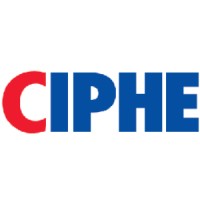Yorkshire Wildlife Trust
Growing conservation charity, Yorkshire Wildlife Trust choose iplicit for their complex accounting needs
Darren Tiffney, director of finance and central services at Yorkshire Wildlife Trust, needed true cloud software to replace a system that was “creaking at the seams”.
What are the day-to-day demands that are typically placed upon your finance system?
Our purchasing and sales team are putting on about 50-60 invoices a day. We’re processing about 150-200 expense claims a month and we do journals every day. So, we do a lot with our system.
The Yorkshire Wildlife Trust has fragmented its operations into individual budgets within geographical regions. And then within those regions, we have 111 nature reserves, which were all micro-cost centres inside the other micro-cost centres. It is phenomenal in its complexity.
"We were using Exchequer when I joined Yorkshire Wildlife Trust, but we’d grown to a £10m-£12m turnover and it was creaking at the seams.
This year, we’re doing away with all the reserves’ micro-budgets and are moving to a more sensible level of the budgetary controls within the organisation.
In the past, most staff didn’t really interact with the finance system at all when handling things like purchase orders, invoice authorisation and expenses authorisation. The challenge was to bring around 160 staff into the process so they're comfortable interacting with the finance system at lots of different levels.
Our income comes from a diverse range of sources. We work with government, with local councils, with landowners, we trade, and we offer services and consultancy. So, we’re a multifaceted charity and we wanted to serve all that with one accounting platform.
What led your decision to change systems?
We were using Exchequer when I joined Yorkshire Wildlife Trust, but we’d grown to a £10m-£12m turnover and it was creaking at the seams.
The thing that alerted me to iplicit was that the Charity Finance magazine said iplicit was Mid-Market and Enterprise Accounting Software of the Year. In fact, they did a 360-degree survey of all the charitable accounting packages out there. Darren Tiffney, Director of Finance and Central Services
You can't grow from £4m to £12m in turnover and not address the finance system, or you’re going to fall off a cliff. I would have had to keep adding finance staff to maintain the system, instead of empowering all the other members of the trust to use the system.
Also, we needed to get the data off our servers. I needed to have a cloud-based system – and not a server-based system that had been “lipsticked” and forced into the cloud. In my experience of software, you cannot evolve from one of those things to another. You’ve just got to start again.
Why did you choose iplicit over the other systems being considered and did you have any key criteria?
The thing that alerted me to iplicit was that the Charity Finance magazine said iplicit was Mid-Market and Enterprise Accounting Software of the Year. In fact, they did a 360-degree survey of all the charitable accounting packages out there.
Some of the other wildlife trusts in the federation are using a different software provider, and I did trial both platforms quite closely. However, with iplicit, we could have our Exchequer archive in the system, as opposed to continuing to pay for a read-only version of it, as we would have done if I had adopted something else.
Even though other wildlife trusts were using a different software provider, I think you have to serve the needs of your own organisation.
What clinched it for me was the layout of the iplicit platform. All the finance staff preferred the feel of it. And the second factor was being able to migrate the archive. I know that sounds quite minor, but we go back quite a lot to look at previous transactions. It’s massively important that we have access to that.
How has your experience been with both the software and iplicit staff?
In my meetings with Paul Sparkes and Adam Clark I had a sense immediately that the team and the software were the right fit because I knew we were going to be really pernickety about the build. We’re quite a complex charity in the way we’re constructed so it was important to work with the right people as I knew it wasn’t going to be straightforward.
I knew we could work through the development well together, and have the system up and running for 1st April, ready for us to switch over. Adam was a useful sounding board and was helpful in assisting us with the partial VAT treatment and other requirements specific to our needs.
From a functionality perspective, what are the major differences with your new system compared to the old one and what benefits have you seen?
Our staff are already feeling the benefits of using a modern finance system. They like the fact that they can access it anywhere – so if we have a problem with our servers, of course, they can continue working in iplicit. The stability of iplicit is a key point as well. I needed to be confident that the system was going to always stay on.
We have a lot of staff in the field – literally in the field – and in the future we see raising purchase orders, approving expenses, approving invoices all being done on the fly, when it used to only be done in an office. This will help everyone keep on top of daily admin tasks easily.
And post-pandemic, we’ve adopted hybrid working, so if I’m in a meeting in Lincolnshire and I need to approve something, in iplicit, I can do it wherever I am, where I would have struggled before. That was one of the reasons to move to cloud accounting, to give that greater flexibility.
"My finance staff like the fact they can access iplicit from anywhere and are already saving time. To reconcile the main bank account would have taken half a day. Now it takes five minutes." Darren Tiffney, Director of Finance and Central Services
What kind of time-saving benefits have you seen?
My finance staff like the fact they can access iplicit from anywhere and are already saving time. To reconcile the main bank account would have taken half a day. Now it takes five minutes.
With expenses, these would have been entered manually on to the finance system previously, taking days to review them. Now it just takes an afternoon to sort all the expenses out, so I do this bi-weekly now.
We are seeing the benefits of the purchase order conversion to invoice process and with the mobile app I can approve POs and expenses whilst in meetings at other locations. As iplicit is Cloud-based, it works well for our hybrid working staff. I also really like the reporting – being able to filter and drill down easily within a project centre to transaction level is easy to do.
Do you have a favourite feature within iplicit?
We adopted the project costing functionality within iplicit because it offered better reporting flexibility.
Our funding is categorised as “restricted” and “unrestricted”, and we need to specify the restriction on certain pots of money to a specific fund.
This assists us in producing our end-of-year fund recognition sheet that shows the movement of all funds. Some charities are funded by just three or four funders, but we have over 100 active funds at any one time.
I think iplicit’s Project Costing area is a better environment to cope with this complexity. It also meant we could put in certain restrictions around user accessibility – so, for example, certain users can only see certain projects and the transactions associated with them.
As a charity we are taking in money all the time and we need to operate in the profit and loss and the balance sheet elements of the account constantly. iplicit gives us the flexibility in the accounts we need.
What advice would you give other Heads of Finance who are contemplating
upgrading their system?
I think from my point of view, I didn't put enough human resource on our end into the process. I have a wonderful volunteer, ex-Ernst and Young, and he's a brilliant financial change specialist. Then there was me and a few of the staff. But the finance staff had to run the finance function whilst also migrating to a new system with no extra capacity. So, if I had my time again, I probably would have enlisted extra support just to assist us with the program change.
However, iplicit's implementation support was great and eased the migration process for us.
Anything else you'd like to add?
It was important that I knew my staff liked the look of iplicit, because as ugly as the old system was, they know it, they’re efficient on it, they know everything it can do and what it can’t – and they were used to it!
You can't grow from £4m to £12m in turnover and not address the finance system, or you’re going to fall off a cliff." Darren Tiffney, Director of Finance and Central Services
Related case studies
Want to see iplicit in action?
Book your demo and discover how iplicit can simplify your finance operations, automate manual processes, and give you real-time visibility - wherever you work.









